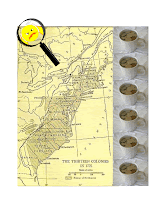I was teaching my reasons for hope to some high school students and I asked them if they ever heard people at school saying we can only know things through science or that we could only know things scientifically. They all had heard people say something similar.
The idea that we can only know things by physical perception isn’t new. In the 1700’s David Hume (1711-1776) believed that truth was a meaningful idea and was either true by definition or must be based on sense experience. By sense experience we’re talking about what can be heard, seen, tasted, touched, or smelled. About 200 years later, A.J. Ayer (1910-1989) used these ideas as the basis for his “principle of empirical verifiability” which claims that a proposition can be meaningful only if it’s true by definition or if it is empirically verifiable (known by physical perception). This is why you might hear the same argument nowadays, but phrased something like, “if you can’t test it scientifically, it can’t be true.”
Therefore, people grounded in reality or someone who is familiar with the works of David Hume or A.J. Ayers might wonder:
- Don’t we only know things scientifically?But don't assume that is where they are coming from; find out what they mean by that question. Let them clarify their own views. Determine how they came to that conclusion. Listen to their answers. (Remember the mean face with covered ears and the magnifying glass.) Ask: “
How do you prove the idea scientifically that we can only know things scientifically?" (Hint: They can’t.)
To understand what someone is supposed to mean when they talk about testing something scientifically, we might want to first briefly review the scientific method, also known as Hypothetical Scientific Reasoning. The scientific method is a series of steps used to predict future events. While specific steps vary, in general, the basic steps are:
1) Observe and describe a phenomenon or group of phenomena.
2) Formulate a hypothesis to explain the phenomena.
3) Use the hypothesis to predict the existence of other phenomena, or to predict quantitatively the results of new observations.
4) Properly perform repeatable experimental tests of the predictions.
5) If the experiments do not bear out the hypothesis, the hypothesis must be rejected or modified. (It is said in science that theories can never be proven; theories can be only disproved.)
6) If the experiments bear out the hypothesis it may come to be regarded as a theory or law.
In other words, we watch the world around us, try to explain why things happen, use that explanation to predict something else happening, and then try the same thing over and over. If the explanation doesn’t hold up we can throw it out or modify it, but if the explanation does hold up we can regard it as a theory or law.
The only problem is that the scientific method is only good for those tests and results which we can physically perceive. Some believe we can only know what is real when we can physically perceive “it”.
Let’s explore this thought of empirical verifiability. As a college student, Norman Geisler was given 20 minutes to discuss the principle of empirical verifiability. In his book,
I Don’t Have Enough Faith to Be an Atheist, Mr. Geisler says his report consisted of just these words,
“The principle of empirical verifiability states that there are only two kinds of meaningful propositions: 1) those that are true by definition and 2) those that are empirically verifiable. Since the principle of empirical verifiability itself is neither true by definition nor empirically verifiable, it cannot be meaningful.” [1]
He sat down.
The principle of empirical verifiability is just another argument that defeats itself.
Do we only know things scientifically?
We do not only know things scientifically because a person cannot prove through repeatable testing that we can only know things scientifically.[1] Extracted from pages 57-59, I Don’t Have Enough Faith to be an Atheist, by Norman Geisler and Frank Turek
